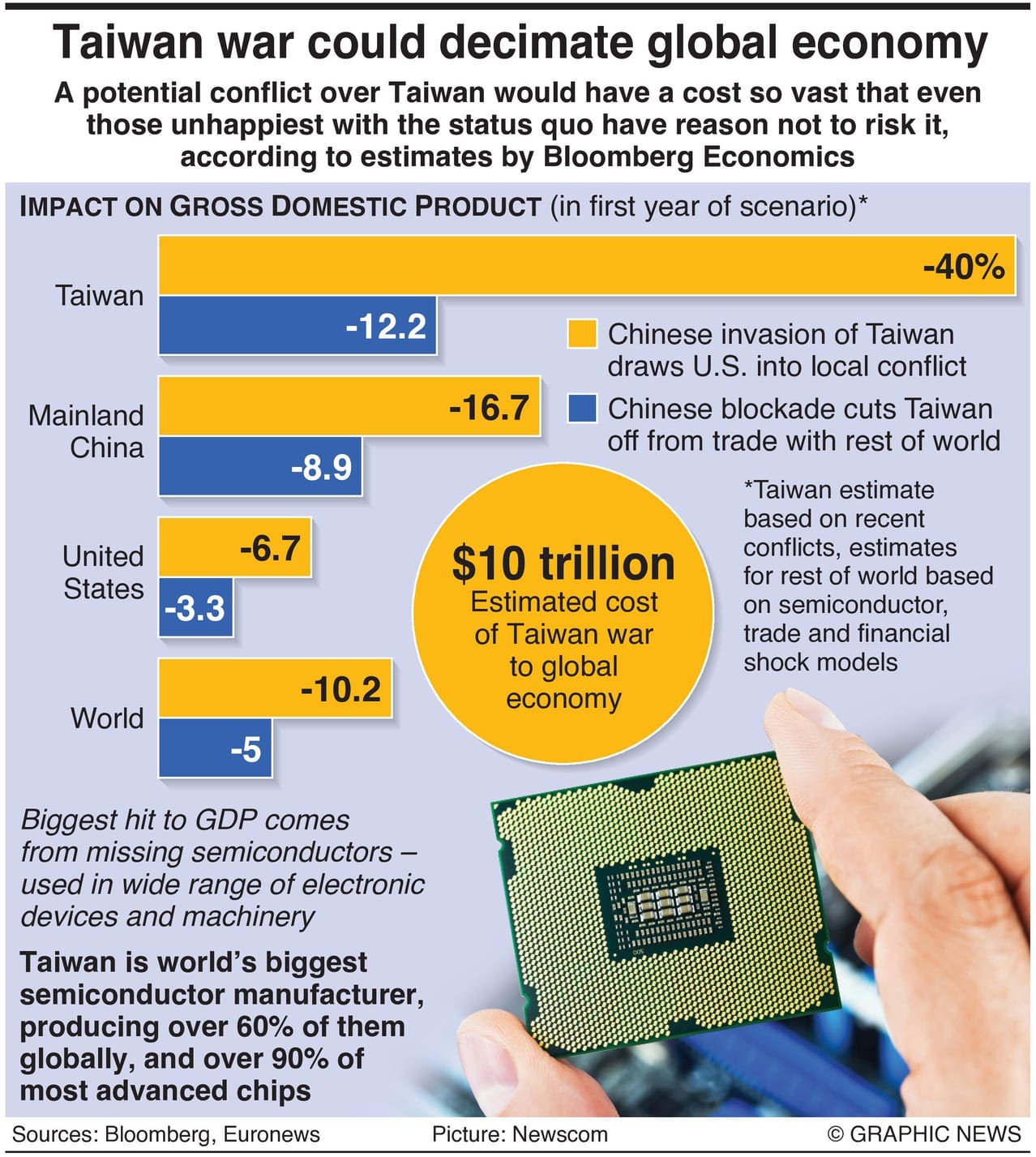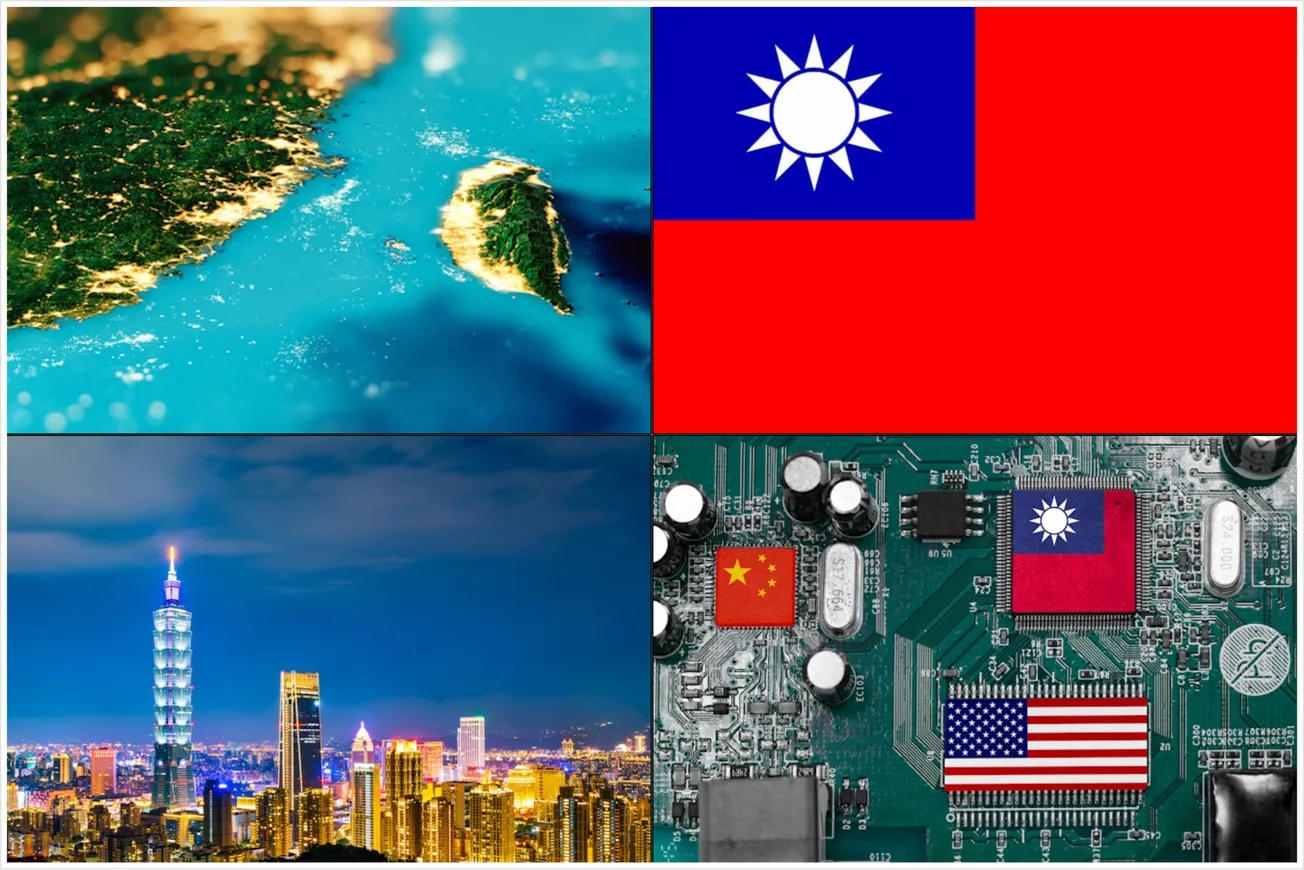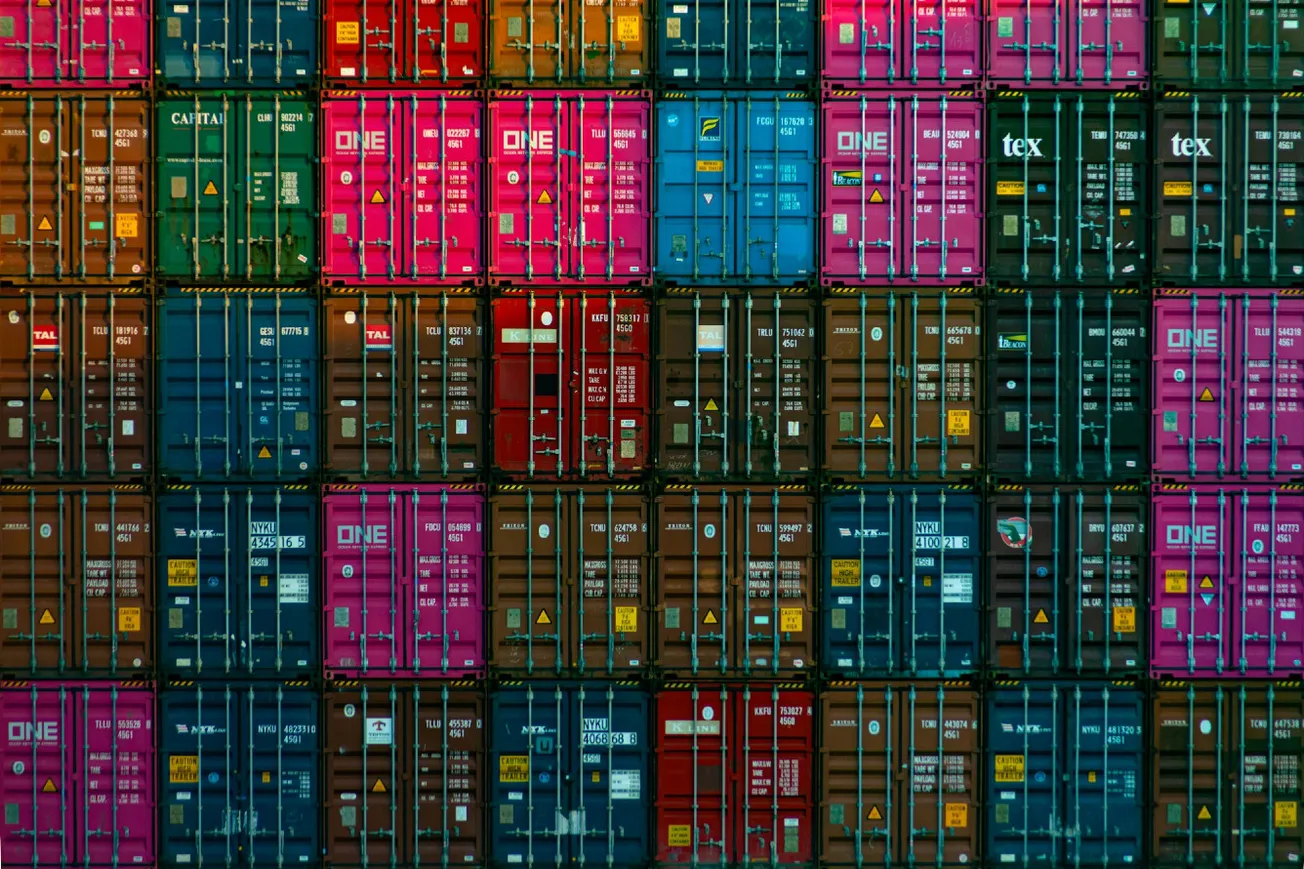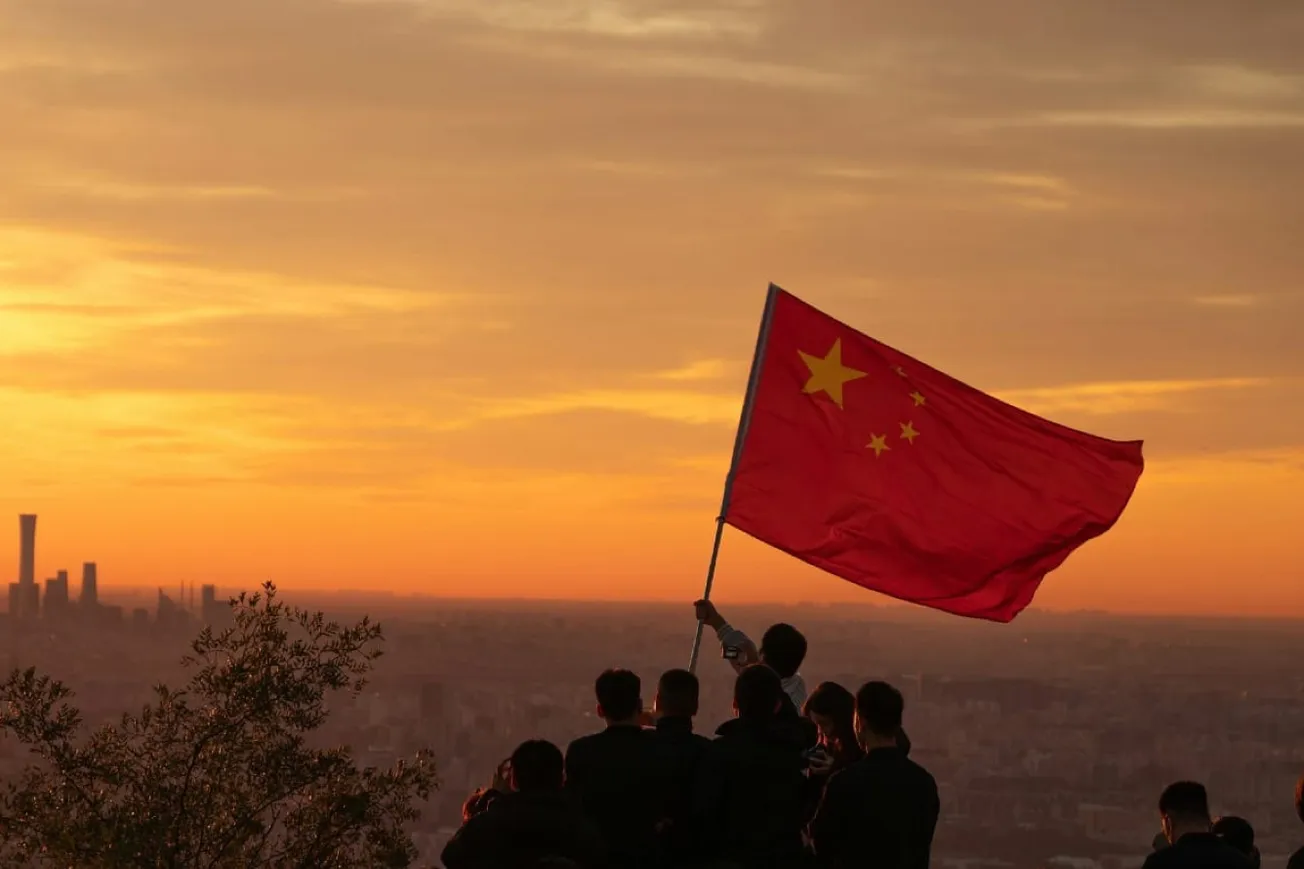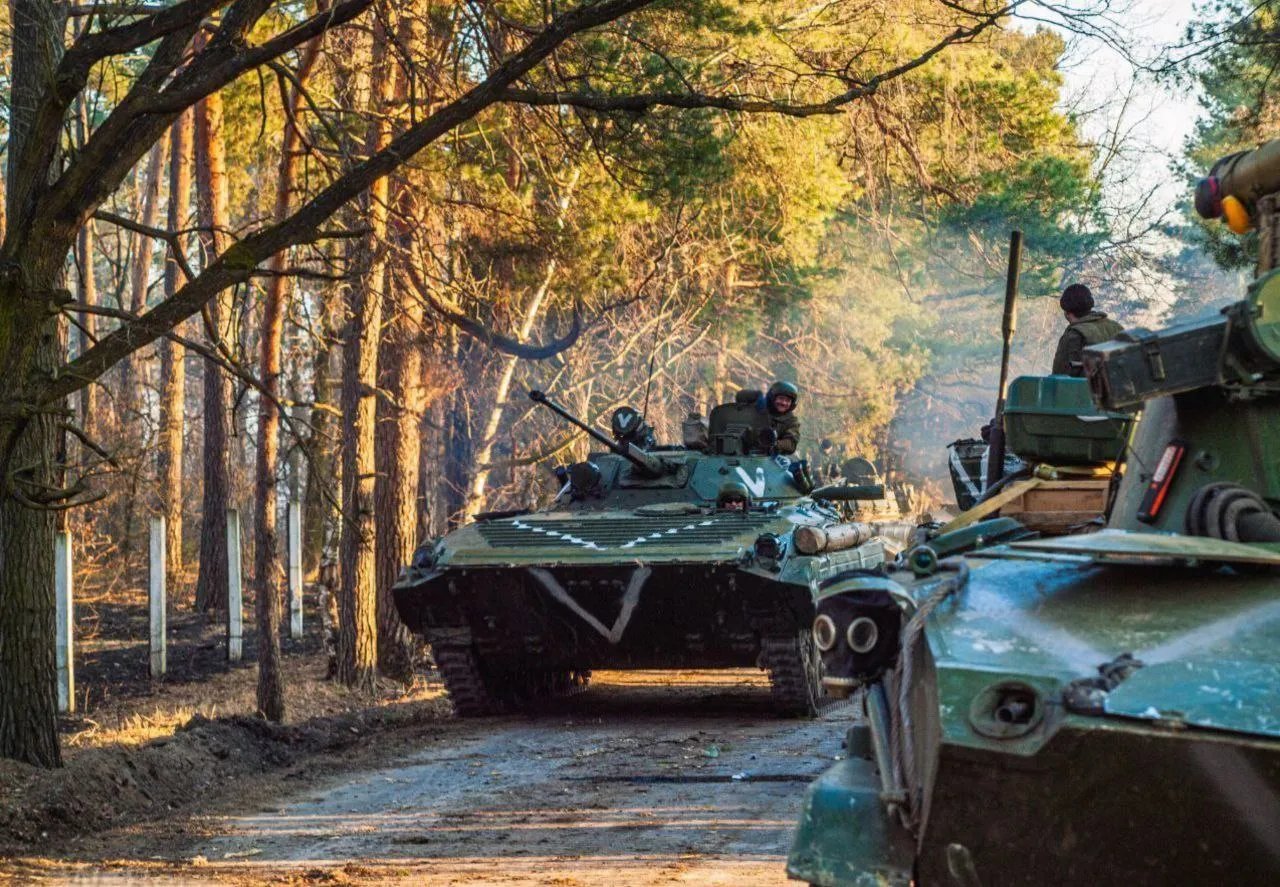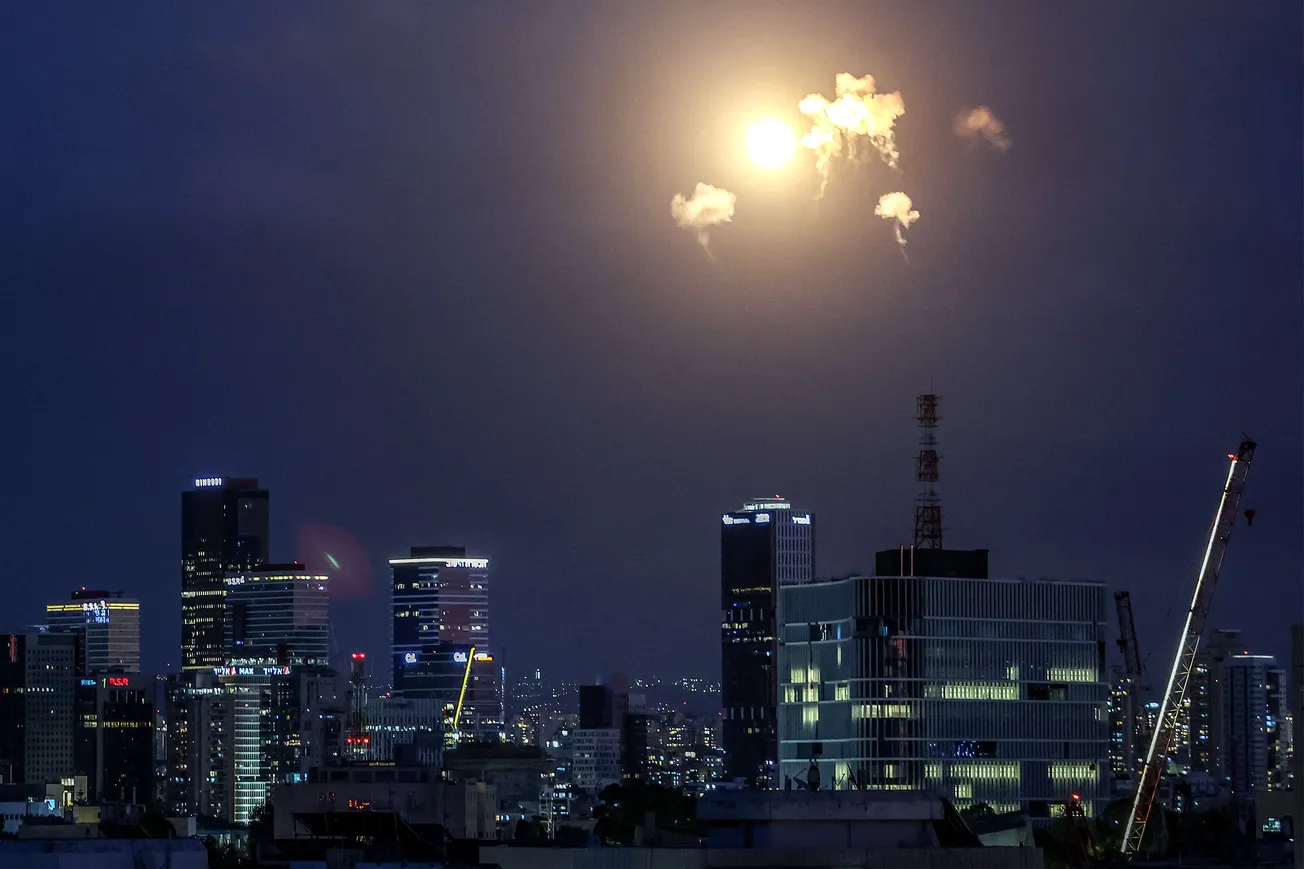A special report released by The Heritage Foundation outlines Taiwan's role in geopolitics, its far-reaching impact on the global economy, and its part in ensuring U.S. national security. Authored by Michael Cunningham, a research fellow of the institution's Asian Studies Center, "The American Case for Taiwan" comprehensively examines why "keeping Taiwan free from an attack or takeover by mainland China is critical" to America's future.
Taiwan's positioning—geographically, politically, and economically —makes it a crucial player on the global stage. Taipei's autonomy from the CCP is vital to maintaining the world economy and containing Beijing's expansionist agenda.
Chinese President Xi Jinping has made no secret of his dream of "reunifying" Taiwan with Beijing. However, the island territory was never directly ruled by the modern Communist Party of China (CCP). While the Chinese constitution states that the island belongs to the People's Republic of China, Taiwan operates as a de facto independent state with its own government, military, and foreign policy.
But, the Taiwanese's growing call for more autonomy and future independence from Beijing has rattled the CCP, especially President Xi Jinping. Cunningham writes:
The very existence of a democratic Republic of China (Taiwan's official name) threatens the legitimacy of the Chinese Communist Party (CCP). It shows that democracy can indeed thrive in Chinese society, disproving the CCP's condescending narrative that the Chinese people are unsuited to exercise the rights and responsibilities bestowed on citizens of democratic states and that the absence of authoritarian rule would only lead to chaos.
Political ideologies aside, Taiwan's location is strategically important to protect, deter, and maintain peace in the region. The report quotes General Douglas MacArthur's "Memorandum on Formosa," a classified document written in 1950 that states the need to keep Taiwan "out of the control of hostile adversaries." Though, at the time, he was referring to the Soviet Union, his reasoning still holds. He wrote, "The geographic location of [Taiwan] is such that in the hands of a power unfriendly to the United States it constitutes an enemy salient in the very center of that portion of our position…. [Taiwan] in the hands of the Communists can be compared to an unsinkable aircraft carrier and submarine tender ideally located to accomplish Soviet offensive strategy…"
Located on some of the busiest and most important maritime routes, Taiwan is about 5,000 miles from Hawaii and Alaska and 7,000 miles from the American mainland. The distance may fool those unschooled in geopolitics to consider the island's problems far removed from America.
But, as Cunningham writes:
Taiwan is central to the U.S.–China competition for regional leadership, and preventing a Chinese takeover of the island is essential to counter the security threats posed by an ascendant China. A change in Taiwan's status might not directly threaten the U.S. homeland in the immediate term, but it would irreversibly alter regional dynamics in ways that would benefit America's chief geopolitical adversary and make every American less safe.
If Taiwan comes under direct CCP control, Beijing would be able to monitor and manage the sea routes around the island. This could have far-reaching consequences on trade and irrefutably tilt the balance of power in the region. The Philippines, Japan, and Australia have raised concerns about Chinese aggression. Manila and Tokyo have hinted that they may become involved if Beijing uses force to "reunify" Taipei.
Besides its strategic location, the tiny island is a giant on the tech front. Taiwan is currently the number one manufacturer of semiconductor chips. "Without semiconductors from Taiwan, the U.S. economy would face disruptions far exceeding the chip shortages that accompanied the COVID-19 pandemic in both severity and duration," Cunningham opines. "Much of the economy would come to a standstill." Though other countries and players are entering the chip-making sector, it will take years or even decades before Taiwan's prowess and capacities can be matched or surpassed.
Stating that "one of the goals of U.S. foreign policy should be to ensure that Taiwan remains safe from attack and free from the CCP's control," the author urges the U.S. administration to "preserve the status quo" by continuing Washington's "strategic ambiguity" policy. He writes, "The government in Taipei, all major political parties, and nearly 90% of Taiwan's people favor preserving the status quo." To achieve this, Cunningham urges America to strengthen deterrence by bolstering America's military position in the Indo-Pacific, enhancing Taiwan's defense capabilities, and encouraging Taipei to prioritize defense.
Cunningham also recommends that America play an active role in shoring up Taiwan's waning international standing. "Taipei now has only 12 formal diplomatic partners, down from 22 in 2016," he cautions.
He concludes that policymakers, through strengthened deterrence and strategic acumen, can maintain Taiwan's security without escalating conflict with China, securing stability vital to U.S. interests:
By strengthening deterrence in the Indo-Pacific and employing the same wisdom and determination that helped America win the Cold War, policymakers can strike the right balance between preserving Taiwan's security and not inadvertently provoking a conflict with China. In doing so, the U.S. can outlast its adversary in the "new Cold War" and ensure peace and stability on this island that is critical to U.S. security and prosperity.
Related Infographics
